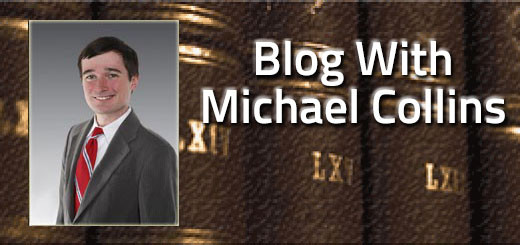Bankruptcy Exemptions: What Property Can You Keep?

Bankruptcy is a frightening term. When hearing that someone is bankrupt, we tend to imagine the worst. You may think this person will end up penniless and be required to sell all of his or her material belongings. Well, it does not have to be that way. Depending on the bankruptcy case, different exemptions can help protect personal property.
Many people who claim bankruptcy exemptions can get rid of their debt altogether by using Chapter 7 bankruptcy. It allows them to keep all or the majority of their personal property. Keep reading to find out how to use the exemption system to your best advantage.
What Are Bankruptcy Exemptions?
In a nutshell, these are laws designed to protect personal property and ensure social security. The goal is to help the individual continue functioning as a productive member of society by keeping essential property or belongings on hand, which can be protected from the bankruptcy trustee.
There are a variety of bankruptcy exemptions, such as a homestead exemption, for example. It is not uncommon for people who claim this type of exemption to protect the equity in their primary residence. It allows debtors to keep a certain amount of the value of their home, up to a specific dollar limit, from being used to pay their creditors.
The exact dollar limit and eligibility criteria vary by state. For example, if a state has a homestead exemption limit of $100,000 and a debtor’s home is worth $150,000 with a $50,000 mortgage, they can protect $100,000 of the home’s value. In this scenario, the bankruptcy trustee cannot sell the home to satisfy the debts, as long as the equity falls within this limit.
What State Has the Best Bankruptcy Exemptions?
How much can be claimed for assets and what can be exempt from bankruptcy depends on the state and federal laws. Some states are generous, while others are very stingy concerning that matter. As a filer, you will be required to use the state exemptions in many U.S. states.
However, it is possible to choose between the state or federal exemption in some states. It is impossible to combine the two versions, though. The type and amount of property that can be claimed differs from state to state.
For instance, New York State enables an exemption for pets and pet food, whereas the maximum exemption is $25K for mules, horses, carts, wagons, machinery, and harnesses in Colorado.
In Hawaii, bankruptcy filers are allowed to keep the equity in their homes for 25,150 dollars per person ($50,300 for married couples) and up to $4,000 for motor vehicles ($8,000 for married couples). Aside from that, Hawaii exemption laws cover a reasonable amount of clothing, as well as furnishings and household goods. Bankruptcy filers can also keep jewelry and household appliances up to a certain amount. That’s not all!
Other assets exempt from bankruptcy include the tools of trade, pensions, retirement funds, public benefits, and a portion of accrued but unpaid salary. Reach out to experienced bankruptcy attorneys to find out more about bankruptcy law and exemptions in Hawaii.
Chapter 7 Bankruptcy vs Chapter 13 Bankruptcy Exemptions
Chapter 13 and Chapter 7 bankruptcies are the two most common kinds of bankruptcy filings. You may wonder, is it cheaper to file Chapter 7 or 13? Expect to pay slightly more than $300 in any case, but the difference in the filing fee is insignificant. You should consider what exemptions they imply instead.
Chapter 7 Bankruptcy Exemptions
Chapter 7 (also known as liquidation bankruptcy) involves taking legal possession by the court. Any assets or property that isn’t covered by exemptions are sold by a court-appointed trustee so that the proceeds go to creditors. This includes any possessions that can be converted into cash (liquidated) to pay off debts.
The portion of the property that can be kept depends on the exemptions claimed and the value of assets. Since the trustee is not allowed to sell any exempted asset or property, nearly everything is kept after the case is filed. You need to qualify first, though.
Chapter 13 Bankruptcy Exemptions
If your debt is lower than a max total of just under $400K for unsecured debts as well as $1M for secured debts and your income is too high, you will not be able to qualify for Chapter 7. Still, there is another option: Chapter 13 bankruptcy.
In this case, you will be able to keep all your property thanks to a debt reorganization plan that can take place from 3 to 5 years. This plan is founded partly on disposable income – income left after paying for the life essentials. Those who make the payments without delay and stick to the plan can keep control of their possessions.
What Assets Can Be Exempt from Bankruptcy?
This depends largely on the bankruptcy law and the federal or state exemption system. Nevertheless, most states in the U.S. share common exemptions. Listed below are the typical state and federal bankruptcy exemptions:
- Personal property or home (a certain amount of its equity)
- Household goods, appliances, and furniture
- Motor vehicles or cars (a certain amount of their value)
- Musical instruments contributing to livelihood
- Tools of the trade or ones needed to do the job
- Health aids
- Most clothing items
- Some jewelry (like wedding rings)
- Wages earned after filing for bankruptcy
- Personal injury awards and crime victim awards
- Retirement accounts
- Veteran’s benefits
- Unemployment compensation and benefits
- Social security benefits
- Alimony and child support
- Life insurance
Non-Exempt Assets and Property: What Is Not Forgiven in Bankruptcy?
As you can see, many different assets can be protected by bankruptcy exemptions. This is not to say bankruptcy relief gives up everything someone owns. Property and assets that are not covered by exemption laws are called non-exempt assets/property. This can include:
- Secondary residential properties (like a vacation house)
- Second cars (unless spouses file jointly)
- Recreational vehicles like quads or boats
- Investments that do not include retirement accounts
- Musical instruments that have no critical impact on the debtor’s income
- Luxury clothing (like a fur coat)
- Valuable jewelry
- Valuable art
- Extra TVs
- Family heirlooms
- Expensive collections like stamps or coins
Related: How to file for bankruptcy in Hawaii

